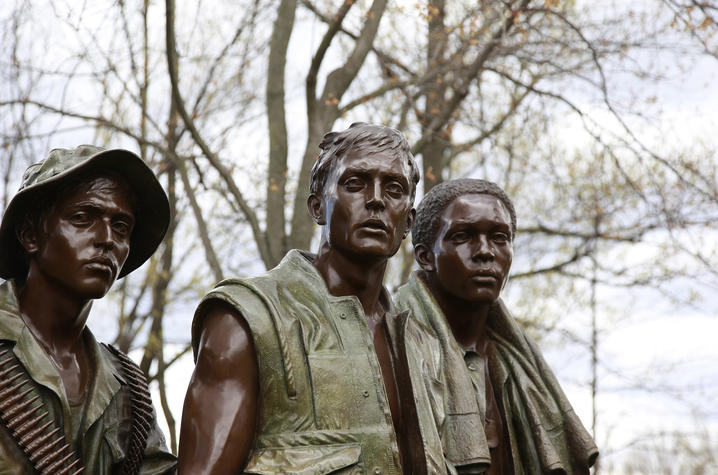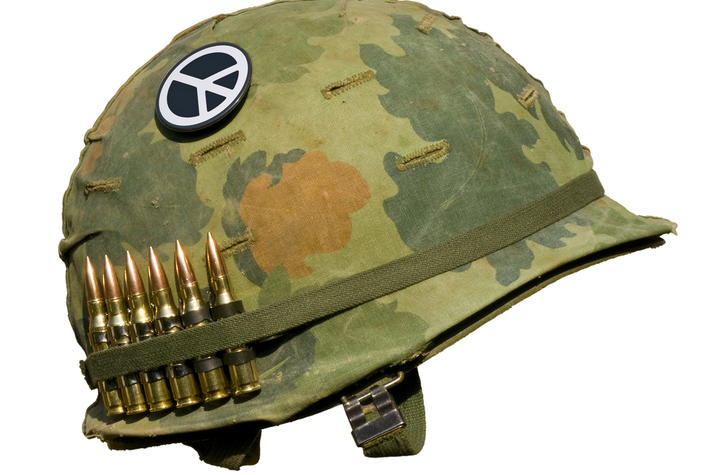Vietnam War Remembered, Recounted by History Department
LEXINGTON, Ky. (Feb. 2, 2018) ― Americans called it the Second Indochina War or, most predominantly, the Vietnam War. The Vietnamese called it the Resistance War Against America or, more simply, the American War.
The difference in the naming of a single conflict demonstrates most dramatically how the war was perceived around the world. Only a decade after World War II ended, virtually every nation of the world was at least diplomatically involved in the Southeast Asian conflict.
It lasted a full generation: officially, from November 1955 (or earlier, in 1950, if one counts the presence of American military advisors stationed in Southeast Asia) to April 1975 with the fall of Saigon.
It was the first modern war America lost ... in more ways than one.
It was also the first war that captured American civilians — not with guns, but with the unwavering, unblinking eye of countless cameras. Americans — including the mothers and fathers, the sons and daughters, the friends and extended family of the soldiers — watched the Vietnam War every single night in all its bloody, horrific detail, up close and personal on the television evening news.
That daily, unblinking exposure to the horrors of armed conflict contributed to making the Vietnam War one of America’s most divisive wars ... among a surprising and surprised group, the civilians.
Individuals began choosing sides, until the nation disintegrated into two unmoving, unmovable factions. Young people in the streets started speaking their minds, and the adults in most families simply didn’t want to hear it. The chaos that was the 1968 Democratic National Convention was a microcosm of America’s political and social environment.
Eventually, America’s social-political crisis fizzled much as the war itself did … with the abrupt destruction of a city and a culture, the fall of Saigon.
Last year was the 50th anniversary of the most critical year of the war, 1967, with drastically increased U.S. casualties, large anti-war demonstrations and protests, and an increasingly divisive domestic debate. The following year, 1968, witnessed the transformative Tet offensive in Vietnam, President Lyndon Johnson’s surprise decision not to run for re-election, the tragic assassinations of Robert Kennedy and Martin Luther King Jr., and the tumultuous Democratic National Convention in Chicago.
With the hope of bringing remembrance and discussion to the University of Kentucky campus and the Lexington community, the UK Department of History created a new course for the spring 2018 semester, HIS-351 “The Vietnam War.” The course examines the origins, evolution, conclusion and aftermath of the Vietnam War.
“Such conversations can help those who lived through the Vietnam era learn more about and perhaps view from different perspectives events they lived through and participated in,” said Alumni Professor of History Emeritus George C. Herring. UK doctoral candidate Cody J. Foster designed and teaches the class.
“(The course) can also assist those who were born later, especially our students, to learn about an era that so roiled the United States a half century ago and what it tells us about ourselves as a nation and how we deal with other peoples. The divisions that so afflict us today date back to the Vietnam War era. A better appreciation of those times may even help us deal with contemporary issues.”
Herring retired after 36 years at UK, including 11 years as chair of the Department of History. He was visiting professor at the U.S. Military Academy and the University of Richmond, as well as a Fulbright Scholar in New Zealand. Herring's connection to the Patterson School of Diplomacy and International Commerce started in the 1970s.
Professor Herring's research centered on U.S. foreign relations. His most recent work is "From Colony to Superpower: American Foreign Relations since 1776," (part of the Oxford History of the United States). Herring is one of the nation's foremost experts on the Vietnam War. His published works on the Vietnam War include “The Diaries of Edward R. Stettinius; “America's Longest War: The United States and Vietnam, 1950-1975”; “The Secret Diplomacy of the Vietnam War: The "Negotiating Volumes" of the Pentagon Papers”; and "LBJ and Vietnam: A Different Kind of War."
Herring and Foster also created the impressive “Remembering Vietnam” Lecture Series to allow the entire campus and Lexington communities to take part in the remembrance and learning.
The first, with Judy Tzu-Chun Wu, professor of history at the University of California, Irvine, is “Patsy for President: Cold War Racial Liberalism and the Viet Nam War” 4-5:30 p.m. Wednesday, Feb. 7, in the William T. Young Library UK Athletics Auditorium.
Pulitzer Prize winner and professor of international affairs and history at Harvard University Fredrik Logevall will discuss “The Meaning of the Vietnam War” 7 p.m., Feb. 22, in the William T. Young Library UK Athletics Auditorium.
“Tet 1968 Revisited” will be the topic of Lien-Hang T. Nguyen, the Dorothy Borg Associate Professor in the History of the U.S. and East Asia at Columbia University. Her talk is slated for 5 p.m., April 4, in the William T. Young Library UK Athletics Auditorium.
Christian Appy, professor of history at the University of Massachusetts, will lead the final event of the series, “The American Legacies of the Vietnam War,” 4:30 p.m., April 19, in the William T. Young Library UK Athletics Auditorium.






